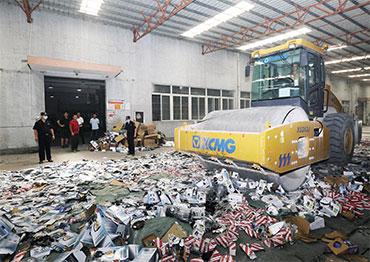As the issue becomes more contentious, food businesses are pushing back against some laws. At the 2017 annual session of the National People’s Congress (NPC), China’s top law-making body, NPC delegate Yang Guoxiu and head of Hunan Guoxiu, a fruit product manufacturer, submitted a proposal for the Supreme People’s Court to stop supporting buyers of problematic products when there is substantial evidence they are aware of the problems before making the purchase.
In response, the Supreme People’s Court said it would scale down its support to “profited-oriented” anti-counterfeit professionals in lawsuits in industries other than the food and medicine industry.
According to Zhao, the success rate for plaintiffs in fake-goods cases immediately dropped. “In the past, the win rate for us was about 60- 70 percent,” Zhao said, “But now, it has dropped to about 10 percent.” Zhao said in most recent cases, fake hunters were no longer considered consumers, but rather were seen as profit seekers.
But it appears courts in different areas adopt different approaches. Yan Bin (pseudonym), a veteran fake goods hunter, also felt the squeeze. Yan said he usually targeted fake-goods sold online and would receive the goods in Shenzhen, Guangdong Province, where he sued the vendors. But in recent years, courts in Shenzhen became increasingly reluctant to accept Yan’s cases. Last year, Yan moved to Guangxi Zhuang Autonomous Region neighboring Guangdong, where the courts remain receptive to anti-counterfeit cases, he said.
Another fake-goods hunter Peng Bo (pseudonym) told NewsChina that courts in Beijing noticeably changed their stance on anti-counterfeit cases starting in mid-2019. He moved to Shanghai, where he filed over 30 lawsuits, most of which were backed by Shanghai courts.
According to Wang Hai, who now owns four companies, it is time for the anti-counterfeit fighters to fight against the scammers among them. In 2019, Wang’s team exposed an account called “big pig group” on social media, which had continuously posted advertisements to recruit “apprentices,” teaching them how to put flies into food or threaten and blackmail business owners. In 2021, Wang claimed on his Weibo account that police had arrested the people operating the scheme.
As for the latest case of fake-hunting teen Chen Zhiqiang, Wang said recently on social media that Chen sometimes did not know what he was doing. “In some cases, Chen even accused food producers that use only domestically produced ingredients of failing to have import licenses for certain ingredients,” Wang said.
Wang Hai, however, remains optimistic about the future of the anti-counterfeit business. “The recent crackdown on abusive litigation can promote the healthy development of the industry,” he said.
In the past couple of years, Wang has shifted his anti-counterfeit business to China’s livestream vendors. In November 2020, Wang made headlines by exposing that bird’s nest products sold by Xinba, one of China’s top livestreamers who had achieved total sales of 8.8 billion yuan (US$1.3b) during the annual November 11 online shopping festival, were nothing but “sugar water.” A month later, market regulators fined Xinba 900,000 yuan (US$132,743) and suspended his account for 60 days.
Then in December 2020, Wang sued Luo Yonghao, another top livestreamer, for false advertising, after he sold a domestically made personal hygiene product as an imported one. Wang sought 250 million yuan (US$36.9m) in a class action lawsuit. “For the genuine anti-counterfeit fighters, now is the best time for business,” Wang said.

 Old Version
Old Version


